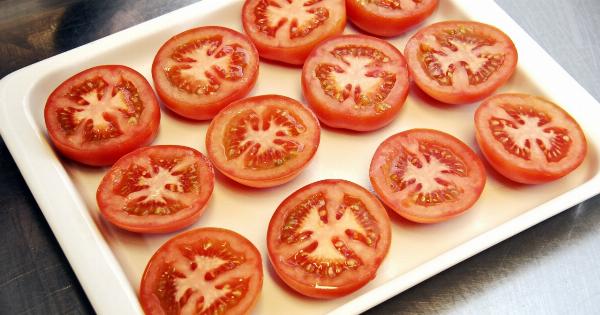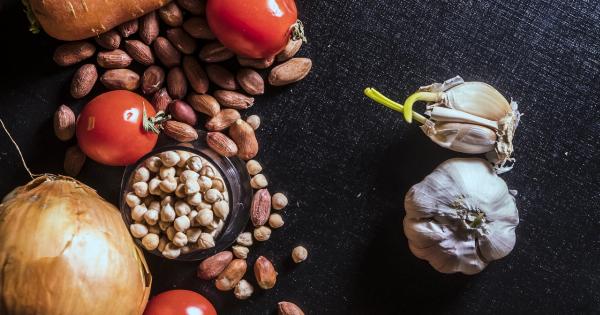If you suffer from indigestion, you know how painful and uncomfortable it can be. Indigestion, also known as dyspepsia, can cause symptoms such as bloating, nausea, and vomiting.
While over-the-counter medication can provide relief, it’s not a long-term solution, and some people prefer to avoid medicine altogether. Instead, there are several foods you can eat that will help alleviate indigestion and prevent it from happening in the first place. Here are the top seven foods to add to your diet to eliminate indigestion:.
Ginger
Ginger has been used for centuries as a digestive aid. It has anti-inflammatory properties that help soothe the digestive system, making it a natural remedy for indigestion.
Ginger also helps with nausea and vomiting, which are common symptoms of indigestion.
To incorporate ginger into your diet, try drinking ginger tea, adding fresh ginger to your meals, or taking ginger supplements. You can also chew on a piece of ginger root to help alleviate symptoms of indigestion.
Peppermint
Peppermint is another natural remedy for indigestion. It has a relaxing effect on the muscles of the digestive tract, which can help soothe symptoms such as bloating and gas.
Peppermint also has anti-inflammatory properties that can reduce inflammation in the digestive system.
You can incorporate peppermint into your diet by drinking peppermint tea or adding fresh peppermint leaves to your meals.
Fennel
A plant in the carrot family, fennel has been used for centuries as an herbal remedy for indigestion. It contains compounds that relax the muscles in the digestive tract, which can help relieve symptoms of indigestion such as bloating and gas.
Fennel also has anti-inflammatory properties that can reduce inflammation in the digestive system.
To incorporate fennel into your diet, try chewing on fennel seeds after meals or adding fresh fennel to your meals.
Pineapple
Pineapple contains an enzyme called bromelain, which helps break down proteins and aids in digestion.
Bromelain also has anti-inflammatory properties that can reduce inflammation in the digestive system, making pineapple a great food for preventing indigestion.
To incorporate pineapple into your diet, try adding fresh pineapple to your meals or drinking pineapple juice. However, be careful not to consume too much pineapple, as it can cause stomach upset in some people.
Yogurt
Yogurt contains probiotics, which are live bacteria and yeasts that are good for your gut health. Probiotics can help improve digestion by maintaining a healthy balance of bacteria in the gut.
Yogurt also contains calcium, which can help soothe symptoms such as heartburn and acid reflux.
To incorporate yogurt into your diet, try eating plain, unsweetened yogurt or adding fresh fruit and honey for flavor. Avoid flavored or sweetened yogurts, as they can contain added sugars that can worsen symptoms of indigestion.
Bananas
Bananas are a great source of fiber, which is important for maintaining good digestive health. They also contain potassium, which can help regulate fluid balance in the body and prevent bloating.
Bananas are also low in acid, making them a good choice for people with acid reflux.
You can eat bananas as a snack or add them to smoothies and baked goods. Just make sure to choose ripe bananas, as they are easier to digest than unripe ones.
Brown Rice
Brown rice is a whole grain that is rich in fiber and nutrients, making it a healthy choice for digestive health. It is also low in fat, making it easier to digest than high-fat foods.
Brown rice can help regulate bowel movements and prevent constipation, which can contribute to indigestion.
Try incorporating brown rice into your diet by substituting it for white rice in your meals. You can also try adding vegetables and lean protein to make a healthy, balanced meal.
Conclusion
Indigestion can be a painful and uncomfortable condition, but it doesn’t have to be. By incorporating these seven foods into your diet, you can help alleviate symptoms of indigestion and improve your digestive health.
Remember to also stay hydrated, avoid overeating, and eat slowly to aid in digestion. If you continue to experience symptoms of indigestion, it’s important to see a healthcare professional to rule out any underlying health conditions.




























